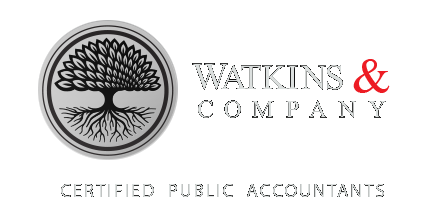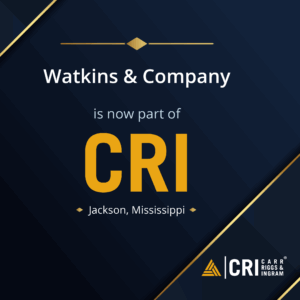Business Entity Formation and Structure for Small Businesses
If you’re on the journey of beginning a new business, congratulations! That’s an exciting endeavor and the start of a new chapter of professional life. A vitally important and foundational step that can impact your venture’s future is selecting the correct business entity and structure. This decision can have a significant impact on your company’s long-term financial viability, protection, and growth potential. When it comes to making these important decisions, having a trusted and experienced business accountant by your side can make all the difference. Watkins & Co. has decades of expertise in advising new business startups and we are here to provide the support you need for creating a successful business foundation.
What Business Structure is Best for Small Businesses?
There are various business structure types and choosing the right entity for your small business depends on your overarching goals and business needs. Selecting the right structure also guides your future business operations, tax obligations, and liability.
Sole Proprietorship: This is the most simple business formation where the company will be owned and operated by a single owner. This will result in full personal liability for business debts.
Partnership: This is best for situations where the business will be owned by two or more individuals. As partners, the profits, losses, and financial obligations will be shared by all owners. Different formations include general partnerships, which indicate equal sharing, while Limited Partnerships (LP) or Limited Liability Partnerships (LLP) reflect limited liability for one or more of the partners.
Limited Liability Company (LLC): The main benefit of forming an LLC is the liability protection for its owner(s). LLCs provide a flexible management structure and pass-through taxation.
Corporation: A corporation formation is best for creating the business as a separate legal entity from the shareholders (owners), directions, and officers. Shareholders will have limited liability protection but will result in double taxation (both corporate and individual taxes). To avoid double taxation, an S Corporation status can be selected.
S Corporation: S Corps require specific ownership criteria and are restricted to businesses with 100 or fewer shareholders. Limited liability is extended to shareholders, as well as pass-through taxation.
For certain professionals or situations, other business entities are available, such as Nonprofit Corporations, Professional Corporations (PC), Cooperatives, and more.
While there are several intricate processes involved with starting your own business, the short and sweet version of how to form a business entity in Mississippi is to:
- Select a name
- Choose a business structure or entity type
- Register with the state and file formation paperwork
- Obtain an EIN
- Set up finances (open a bank account) and tax registration
Watkins & Co. can help you navigate these steps and ensure that you are fully compliant as you form your new business.
New Business Formation Mississippi
Watkins & Co. is here to help assure your business’s long-term financial success as your dedicated accounting partner. We provide expert guidance on selecting the right business structure for your unique situation and guide you through the complex business formation process in Mississippi. From handling paperwork to compliance requirements, we handle the setup and day-to-day accounting elements it takes to start a business so that you can focus on building your brand. Our experienced CPAs and accountants also provide tax planning and compliance advice, financial reporting and analysis, operating agreement advice, business plan consulting, establishment of processes and procedures, and ongoing support and consultation for new business owners. Plus, if you decide you would benefit from having a dedicated accounting firm on your side, we provide comprehensive business financial services to companies across Mississippi. Our experienced small business accounting team is just a call or click away! We’re here to help you today!





